Pregnant women, children among 13,000 refugees abandoned 'to die' in Sahara Desert
Algeria government has left migrants, refugees without food or water under piercing sun
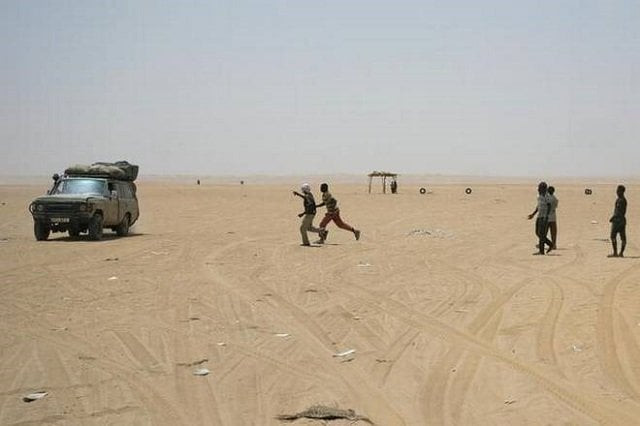
Algeria has left more than 13,000 migrants, including pregnant women and children, to die in the Sahara Desert over the past 14 months, Al Jazeera reported on Monday.
The government has undertaken this process in the past 14 months expelling them without food or water and compelling them to roam, sometimes at gunpoint, under the piercing sun with some never making it out alive.
The banished migrants and refugees can be seen coming over the horizon by the hundreds, appearing at first as specks in the distance under temperatures of up to 48 degrees celsius.
In Niger, where the majority head, the lucky ones march across a desolate 15km no-man's-land to the border village of Assamaka.
Others roam for days on end before a United Nations rescue squad can get to them.
Untold numbers perished as nearly all of the more than two dozen survivors said there are people in their groups, who simply vanished into the desert.
"Women were lying dead, men ... Other people got missing in the desert because they didn't know the way," said Janet Kamara, who was with a baby at the time.
"Everybody was just on their own," she added.
Survivors report 220 migrants drowned off Libya in recent days: UNHCR
She recalled at least two nights in the open before her group was rescued, however, she said that she had lost track of time.
"I lost my son, my child," said Kamara, a Liberian.
Another woman in her early twenties also went into labor and lost her baby, she said.
Algeria's mass expulsions have picked up since October 2017, as the European Union applied fresh pressure on North African countries to head off migrants and refugees going north to Europe through the Mediterranean Sea, as well as, the barrier fences with Spain.
An EU spokesperson said they were aware of what Algeria was doing, but that sovereign nations may banish migrants and refugees as long as they comply with international rules and regulations.
'Tossed into the desert'
Unlike Niger, Algeria takes none of the EU money intended to help with the migration and refugee crisis despite that fact that received a dispensation of $111.3m in aid from Europe between 2014 and 2017.
Algeria provides no figures for its involuntary expulsions. Notwithstanding, the number of people crossing on foot to Niger has been on the rise ever since the International Organization for Migration (IOM) started counting in May 2017, when 135 people were dropped, to as high as 2,888 in April 2018.
In all, according to the IOM, a total of 11,276 men, women and children managed to survive the march.
At least another 2,500 were forced on a similar trek into neighbouring Mali, with an unidentified figure succumbing along the way.
The migrants and refugees described being rounded up in the hundreds at a time, squeezed into trucks for hours on end to what is known as Point Zero and then being dropped in the desert and pointed towards Niger. They walk, sometimes at gunpoint.
"There were people who couldn't take it. They sat down and we left them. They were suffering too much," said Aliou Kande, an 18-year-old from Senegal.
Kande said nearly a dozen people gave up, fainting in the desert. His group of 1,000 wandered from 8am until 7pm, he said. He never saw the missing people again.
"They tossed us into the desert, without our telephones, without money," he added.
'There is no mercy'
The migrants and refugees' accounts are confirmed by video footage showing hundreds of people stumbling away from lines of trucks and buses, spreading wider and wider through the Sahara.
Two persons said gendarmes fired on them, and multiple videos seen showed armed, uniformed men standing guard.
Liberian Ju Dennis filmed his deportation with a phone he kept hidden on his body.
It shows people crammed on the floor of an open truck, hopelessly endeavouring to shade their bodies from the sun and hide from the gendarmes. He narrated every step of the way in a hushed voice.
Traffickers kill 12 migrants trying to flee Libya camp: UN
"You're facing deportation in Algeria - there is no mercy," he said. "I want to expose them now...We are here, and we saw what they did. And we got proof."
Algerian authorities have refused to comment. However, the country has in the past denied criticism that it is committing rights abuses by abandoning migrants and refugees in the desert, calling the allegations a "malicious campaign" intended to anger neighbouring countries.
'Swift killer'
The Sahara is a swift killer that leaves little evidence behind. The IOM has estimated that for every person known to have died crossing the Mediterranean, as many as two are lost in the desert - potentially upwards of 30,000 people since 2014.
The vast flow of people puts an enormous strain on all the points along the route.
"They come by the thousands. This time, the expulsions that I'm seeing, I've never seen anything like it," said Alhoussan Adouwal, an IOM official who has taken up residence in Assamaka to send out the alert when a new group arrives.
He then tries to arrange rescue for those still in the desert. "It's a catastrophe."
Most choose to leave by IOM bus for the town of Arlit, about six hours to the south through soft sand. And then on to Agadez, the Nigerien city that has been a crossroads for African trade and migration for generations.
Ultimately, they will return to their home countries on IOM-sponsored flights.
Even as these migrants and refugees move south, they cross paths with some who are making the trip north towards Algeria and Europe.
Every Monday evening, dozens of pickups filled with the hopeful pass through a checkpoint at the edge of the city.
They are fully loaded with water and people gripping sticks, their eyes are firmly fixed on the future.
The article originally appeared on Al Jazeera

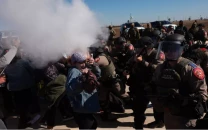
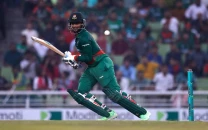
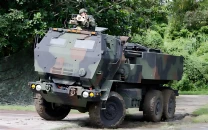
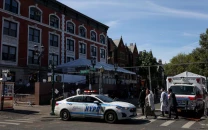
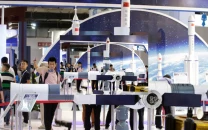













COMMENTS
Comments are moderated and generally will be posted if they are on-topic and not abusive.
For more information, please see our Comments FAQ